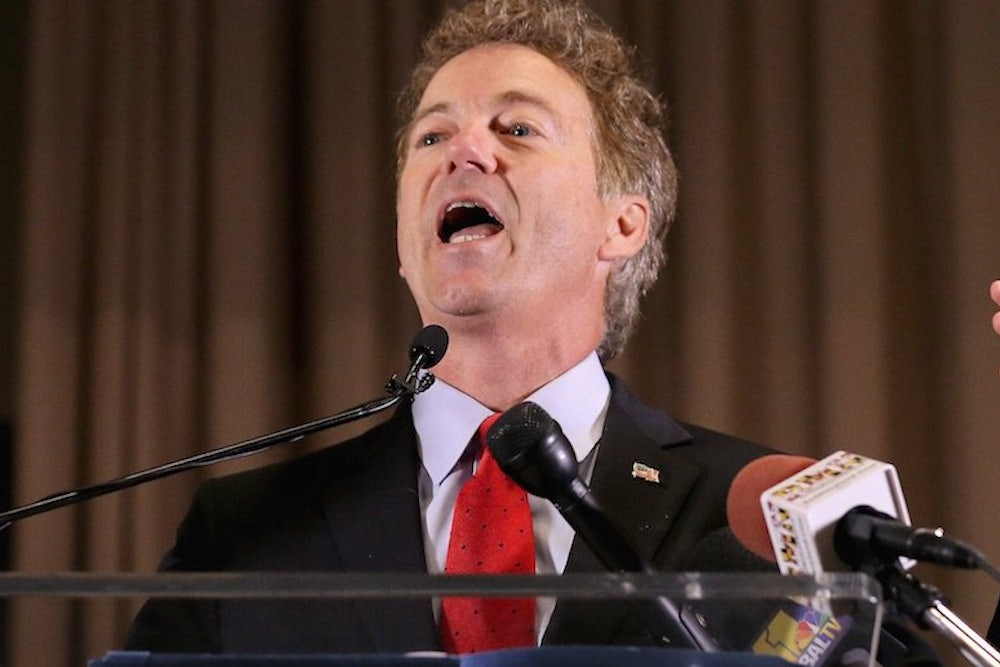When Senator Rand Paul spoke on race in America at a fundraiser for Baltimore County Republicans on Tuesday night, he sounded like a different presidential candidate from the one who dismissed black protesters a few months ago. At the height of Baltimore’s unrest, in an interview with conservative radio host Laura Ingraham, Paul railed against “thuggery and thievery,” stressed the “plight of police,” and blamed “the breakdown of the family structure” for Baltimore’s violence. He also joked that he was "glad" that the train he was on the night before didn't stop in Baltimore. His campaign later acknowledged the tone-deafness of the comment, promising, “We learned from this.”
Tuesday was a chance for Paul to make amends, though in front of a largely white and conservative audience in a Baltimore County suburb. And for a few minutes, two-thirds of the way through his speech, Paul almost proved that he did learn something from Ferguson, Baltimore, and other Black Lives Matter protests.
Once he checked off his usual stump-speech lines on Hillary Clinton, Benghazi, government surveillance, and even a Malcolm Gladwell quote, Paul discussed Kalief Browder. Browder was arrested in Bronx at age 16 and kept in solitary confinement at Rikers Island for three years without a trial or conviction; this week, he committed suicide.
“When I see people angry, I understand where some of the anger is coming from,” Paul said. He even acknowledged some of his own privilege, maybe as a kind of apology: “I didn't grow up poor—I grew up middle class, or upper middle class. This is me learning about how other people have to deal with life. And this young man, 16 years old, imagine how his classmates feel about American justice. Imagine how his parents feel. So the thing is until you walk in someone else’s shoes we shouldn’t say that we can’t understand the anger in people.”
Paul diverges from the Republican consensus on several key issues related to race, like his softer line on early voting. He cited a voter registration drive in Ferguson as a constructive solution. But even though he's more open to expanded voting rights and drug decriminalization than your average GOP presidential candidate, Paul said multiple times on Tuesday night that he doesn’t think racism is a factor in Baltimore's troubles. "Many of your elected officials are black,” he said. Instead, he blamed local Democratic control—a common Republican attack that was also parroted by Baltimore County GOP chairman Al Mendelsohn, who blamed Democratic policies for allowing property damage and for causing people to flee the city "like they were leaving Cuba or Mexico.”
This leaves out quite a bit of history of Baltimore’s segregation, briefly summarized here, like redlining black neighborhoods and allowing financial institutions to prey on black homeowners. And yes, Democrats share the blame for this.
But Paul's solution for improving conditions in Baltimore sounded woefully familiar: “We lower the taxes on the business people so they hire more people.”
It was a reminder that, for all his talk of criminal justice reform, Paul is still a Republican in an increasingly populated primary. Don't expect concrete, progressive policies to ease racial and economic inequality. This speech is probably the best we can expect from him—a more serious examination of race than most of his competitors will commit to, but one that only gets halfway to the point.
